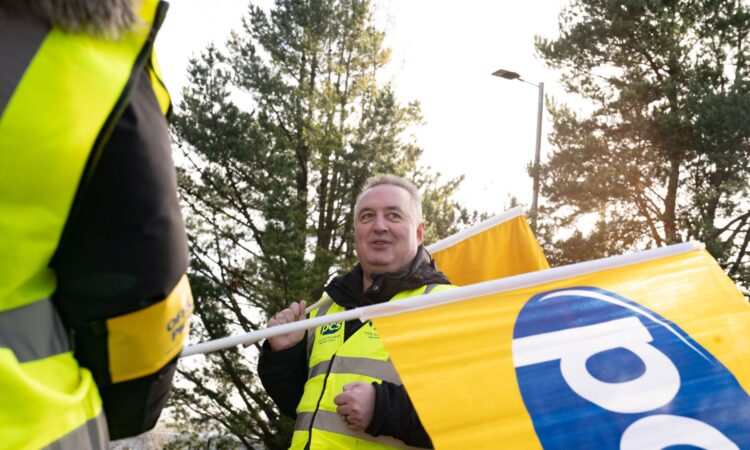
In southwest England, Mark Dollar, 50, and three other picketers stood outside the National Highways office, wearing yellow vests emblazoned with “PCS” and “Public and Commercial Services Union”. They were participating in industrial action following PCS ballot last November, where members across 124 business units, including National Highways, voted in favour of a 10% pay rise, improved pension benefits and job security.
PCS general secretary Mark Serwotka stated, “Members are angry. They helped to keep this country running during the pandemic, and in return, have been treated appallingly by this government.” He highlighted the 11.1% inflation rate and the real terms pay cut that members face.
Dollar, the PCS trade union representative for National Highways, has been working to organise industrial action. He has focused on keeping the action small to utilise PCS funds to compensate workers for their loss of earnings on strike days. However, with the UK government refusing to engage with the strikers, Dollar faces a challenging task.
Despite Dollar’s background in private education and family connections to the Conservative Party, he remains “fiercely left wing”. He joined the PCS Union after becoming frustrated with management at the Highways Agency, now National Highways, and witnessing colleagues being bullied by managers. As the representative for the southwest, Dollar’s first goal was to eliminate workplace bullying.
Dollar believes that people’s perception of trade unions in the UK is outdated, with many remembering the miners’ strike of the 1970s and 1980s rather than the current role of unions like PCS. In recent years, he has worked to create a new employer relationship framework agreement, aiming to improve the way management and staff work together.
Although the industrial landscape in the UK remains bleak, with double-digit inflation and a government ignoring strike action, Dollar continues to represent the members of the National Highways PCS. He is hopeful for a repoll, as the previous ballot was just seven votes short of the required 50% voter turnout.






